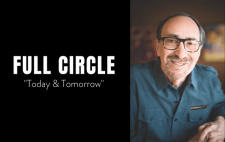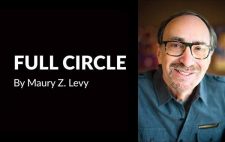My sister died of cigarettes. Sure, she had arthritis and spinal stenosis but, mostly, she died of cigarettes.
I told her to stop smoking when I was 8 years old. But she was 14 years older than me and never listened to a word I said. She just smoked her Pall Malls. A pack a day, that she admitted to. Which means it was probably two. As a kid, I don’t ever remember seeing her without a cigarette in her mouth. She had, by the age of 16, mastered the fine art of talking while a Pall Mall was stuck to her lower lip. No hands. It was quite the trick.
“Those cigarettes are going to kill you,” I would tell her. She just shook her head at me. Kids.
“If they weren’t good for you,” she said, “doctors would tell you that. You have to trust your doctor.”
And she grew up in an age when most doctors weren’t warning about cigarettes. In fact, many doctors smoked. Some in the office.
Certainly, today the medical profession is much more advanced. We marvel at their findings – cures for all that ails us.
But it was a bumpy road that led them here.
When my sister was born, do you know how they treated something as simple as head lice? No, not with medicated shampoo. They would pour gasoline or kerosene on your head. Oh, that treatment killed some lice, alright. As long as the patient didn’t walk anywhere near an open flame.
They used to treat migraines with hydroelectric baths. Some doctors recommended lounging in a warm tub with a small amount of current passing through it. Not sure what that would feel like? Next time you take a bath, have someone drop a toaster in it.
Dealing with depression? Before you take your next Zoloft, think about this: In 1949, the doctor who invented the frontal lobotomy was awarded the Nobel Prize in Medicine. 1949!
You might want to skip this next part. A frontal lobotomy is when a doctor takes what looks like a 10-inch-long ice pick and sticks it in your eye socket. Then he wiggles his way through to your brain, where he shreds the part of it that was thought to cause mental problems – anything from schizophrenia to anxiety. So stop complaining about side effects from your depression pill.
Earlier in the 20th century, Bayer marketed a cough remedy that contained one magic ingredient: heroin. It was then believed that heroin was less addictive than morphine. Heroin was seen as a miracle cure for tuberculosis. That was before there was a run on hospitals of patients who’d become addicted to it. In 1913, Bayer decided to take heroin off the market.
Right about that time, before the introduction of penicillin, mercury was used to cure STDs, like syphilis. Doctors wrote prescriptions for mercury-based ointments. But there seemed to be a minor side effect or two. Mercury consumption can cause everything from tooth loss to organ failure. Not to mention damage to your nervous system and, well, death.
Which brings us back to cigarettes. In the 19th century, doctors thought that tobacco was able to treat any number of problems – constipation, hernias, ringworms, infections. Tobacco was taken orally or rectally or applied externally. So if it could cure all those problems, it certainly couldn’t hurt to smoke it.
In the 1950s, when my sister was having babies, there was little warning about smoking. In fact, some of the tobacco companies were using doctors’ testimonials in their ads.
There was a Camels ad with “a noted throat specialist” pictured with a cigarette in his hand. The headline said, “More Doctors Smoke Camels Than Any Other Cigarette.”
Even when some questions arose, the manufacturers leaned on science. A Lucky Strike ad headlined, “20,679 Physicians Say Luckies are Less Irritating.”
That’s a lot of doctors. And my sister was taught to listen to doctors.
My sister died of cigarettes.












